
|
Email: vern@cres.org — Box 45414, Kansas City, MO 64171-8414 |
This page is migrating material from this more complete page: /team/vern Vern Barnet The Rev Vern Barnet, DMn CRES minister emeritus 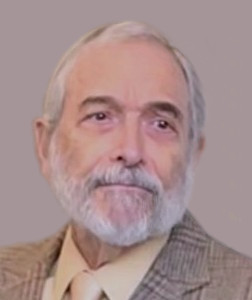 VERN BARNET, minister, columnist, editor, author, teacher, and interfaith leader and consultant, the recipient of many local and national civic and religious honors, was
born 1942 in Omaha, NE. Since 1975, he has lived in the Kansas City
metro area, most of this time in Westport, the oldest part of Kansas
City, MO. VERN BARNET, minister, columnist, editor, author, teacher, and interfaith leader and consultant, the recipient of many local and national civic and religious honors, was
born 1942 in Omaha, NE. Since 1975, he has lived in the Kansas City
metro area, most of this time in Westport, the oldest part of Kansas
City, MO.He is known to many Kansas Citians through the weekly "Faith and Beliefs” column published 1994-2012 in The Kansas City Star. Founder of The Kansas City Interfaith Council and its convener through 2003, he is now its convener emeritus. He has been active in many professional and civic organizations. His articles, poems, and reviews appear in many journals. Barnet has taught religion courses as an adjunct at the Ottawa University Kansas City campus, Park University, Avila University, and Baker University, and taught graduate ministerial students at the Unity School of Christianity, the Central Baptist Theological Seminary, and the Saint Paul School of Theology (Methodist). In 2007 he served on the international faculty of the pilot “Interfaith Academies” partnered by Harvard University’s Pluralism Project, Religions for Peace-USA at the United Nations Plaza, the Saint Paul School of Theology, and the Greater Kansas City Interfaith Council. He continues as a member of the Souljourners faculty training spiritual directors at the Sophia Retreat Center of the Benedictine Sisters at Mount St Scholastica. For six years he served on the editorial board of Unity Magazine as its only non-Unity ministerial member, and is noted as contributor to The Interfaith Observer. 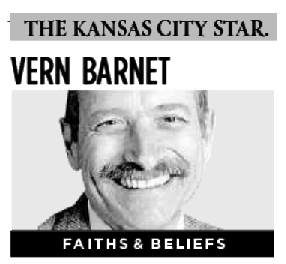 HONORS AND INVOLVEMENT.— In 1979, Barnet received the Kansas City Jewish Community Relations Bureau’s first “Distinguished Community Service Award” from its Board — and in 1998 the American Muslim Council, Midwest Region, gave him its first “Distinguished Community Service Award.” In 1987 the Overland Park Rotary Club honored him as a Paul Harris Fellow with its “Distinguished Community Service Award,” and in 2002 he received the “Community Service Award” from the Crescent Peace Society. In 1989 he was selected for Kansas City Tomorrow, a year-long leadership development program sponsored by the Civic Council of Greater Kansas City; and in 1996, after serving six terms on its alumni board, he was honored as “the Star of the Kansas City Tomorrow Alumni Association,” and he was voted its “Distinguished Alumnus of the Year” ten years later. In 1990 he was honored by the Ethnic Studies Center at William Jewell College for his community work fostering understanding among faiths. In 1991 he received the Warren Dentler Religious Service Award from the Waldo-Country Club Ministerial Association. In 2005, from Kansas City Mayor Kay Barnes, Barnet received the first “Table of Faiths” award of the reorganized Greater Kansas City Interfaith Council at a luncheon in his honor. In 2006, the Midwest Sikh association presented him with its “Vaisakhi Community Service Award.” The National Community Leadership Association presented him with a “Distinguished Leadership Award” at its 2006 conference in Hartford, CT. In 2007 the Hindu Temple and Cultural Center of Kansas City honored him with an award and shawl. In 2008, he received The Abrahamic Legacy Award from Al Inshirah Islamic Center. In 2010 he received the Lifetime Achievement Award from the Crescent Peace Society and the inaugural "Vern Barnet Interfaith Service Award" from the Heartland Alliance of Divine Love. In 1993 Vern was named Director Emeritus of the Center for All Men. He organized the Kansas City Interfaith Council in 1989 and hosted it through 2004; for its first four years, he coordinated the Christian-Jewish-Muslim Dialogue Group. A “Coming of Age” program he initiated locally won national recognition. He has been president of several clergy groups and held office in various professional organizations, and served on numerous community and national boards, such as the Mainstream Coalition, Gift of Life, Overland Park Rotary, Kansas City Tomorrow Alumni Association, NCCJ, and the American Civil Liberties Union affiliate. In 1996 he drafted the recommendation of the Religion/Spirituality Cluster of the Mayor’s Task Force on Race Relations.  He chaired the Jackson County Diversity Task Force following 9/11,
which submitted its 77-page report on 2002 September 10, and led the
team which organized the central 9/11 first anniversary observances for
the metro area.
He chaired the Jackson County Diversity Task Force following 9/11,
which submitted its 77-page report on 2002 September 10, and led the
team which organized the central 9/11 first anniversary observances for
the metro area. (These and other Kansas City area interfaith projects were featured on the network CBS-TV half-hour religion special, “Open Hearts Open Minds,” broadcast in October, 2002.) His past and current service includes work on boards for organizations such as the the John Brown Ampitheater Association, Friends of the Department of Religious Studies at the University of Kansas, the American Friends Service Committee, the ACLU (American Civil Liberties Union), the Overland Park Rotary Club, the Shawnee Mission School of International Studies, the Kansas City Tomorrow Alumni Association, the Shawnee Mission Medical Center’s Institute for Spirituality and Health Advisory Board, the MAINstream Coalition Board and, earlier, its Advisory Board, the NCCJ (National Conference for Community and Justice — formerly National Conference of Christians and Jews), and the Gift of Life Foundation. He has also been a volunteer for organizations such as the Friends of Probationers (in Crawford County, PA), the YMCA, and the Boy Scouts (Tiger Cubs Den Leader), and was a JayCee and Kiwanian. In 2001, he led the planning for the Kansas City area’s first interfaith conference, for which he was president. This historic event resulted in a Unanimous Declaration to the community, and led to the creation of the play, “The Hindu and the Cowboy and Other Kansas City Stories” by Donna Ziegenhorn, and a national model, The Greater Kansas City Interfaith Passport. In 1984, he was part of the first group of Westerners in history to follow the sacred “Gyo” path on Mt Hiei, Japan. In 1986 his interest in Pandurang Athavale led to speaking to an assembly of 500,000 on the banks of the Ganges River. He has attended, spoken at, and helped organize numerous international conferences on religion around the world. EDUCATIONAL ACTIVITIES.— Barnet has lectured at universities and churches around the country. In Kansas City, he has taught at the graduate and undergraduate levels at the Saint Paul School of Theology, Central Baptist Theological Seminary, Baker University, Ottawa University - Kansas City, Park College, and Avila University, for ministerial and lay training at the Unity School of Christianity, for students training to be spiritual directors at the Sophia Retreat Center, and community courses for Johnson County Community College. He has spoken for Jewish, Christian, Hindu, Buddhist, Muslim, Sikh, and other religious organizations, and for retreats, schools, and business and civic groups. He served on the steering committee founding the Shawnee Mission School District’s Center for International Studies. Barnet’s writings have appeared in professional journals, popular periodicals, and denominational curricula. He has appeared on, and consulted for, TV and radio around the country. Locally he has appeared on programs like KCPT’s “Kansas City Week in Review” and KCUR’s “Under the Clock” with former mayor Emanuel Cleaver, the Sunday morning show with Patrick Neas, “The Walt Bodine Show,” and Steve Kraske’s “Up to Date.” He has presented workshops at regional, continental, and international meetings. His first major article, “God is Doing His Thing: The Hippie Heresy and Liberalism,” was published in The Journal of the Liberal Ministry, Winter, 1969, before he completed his doctoral degree and was a 45-page excerpt from his dissertation. He edited and contributed to a book on worship, An Abraxas Reader (1980). His Rotary Club Foundation recognized his work helping to found a yearly week-long Youth Leadership Institute for high school students. He supervised the development of the curriculum and later chaired the Institute. In 2000, he received the Pikes Peak [Colorado] “Interfaith Cooperation and Achievement Award.” In 2001, he received the “Bodhisattva Award” from the Rime Buddhist Center Monastery and Tibetan Institute of Studies. He is cited in a number of works, including Robert B Tapp’s Religion Among the Unitarian Universalists (1973), Mohammad T Mehdi’s Islam and Tolerance (1990), and Neal Vahle’s The Unity Movement (2002). He drafted the text of Governor Graves’ Ramadan proclamation, quoted in Harvard Professor Diana Eck’s A New Religious America (2001). (More recent examples are listed below.) Barnet, along with three others, wrote for, and edited, the 740-page The Essential Guide to Religious Traditions and Spirituality for Health Care Providers, published in the UK and US by Radcliffe in 2013. Barnet’s collection of sonnets, Love Without Desire, was published in 1992. He is now writing a book on worship and a book on world religions, and was the developmental editor for the memoirs of Alvin L Brooks, Binding Us Together: A Civil Rights Activist Reflects on a Lifetime of Community and Public Service, published in 2021 by Andrews McMeel. His second collection of sonnets, actually a prosimetrum, Thanks for Noticing: The Interpretation of Desire, was published in 2015; a second printing, with extensive corrections and revisions, is expected in 2025. ACADEMIC PREPARATION, PREVIOUS POSTS, and FAITH AFFILIATIONS.— Barnet completed doctoral work at the University of Chicago and the affiliated seminary, the Meadville Theological School (DMn, 1970), where he studied with Mircea Eliade, then generally recognized as the world’s foremost scholar of the history of religion. There he also studied with philosopher-psychologist Eugene Gendlin of "Focusing" fame, psychiatrist-thanatologist Elisabeth Kübler-Ross, proponent of redaction criticism Norman Perrin, and noted author and theologian Langdon Gilkey His training also included study at the Center for Advanced Study of Religion in an Age of Science with noted proponent of theocentric naturalism, Henry Nelson Wieman, and Ralph Burhoe, the first American to win the Templeton Prize for Progress in Religion. An undergraduate at the University of Nebraska, Barnet first encountered language analysis in religion with the philosopher and churchman O K Bouwsma. He was a teaching assistant for philosopher Charles H Patterson. As a graduate student there, he studied with US Poet Laureate and editor of Poetry magazine, Karl Shapiro. His early academic study of Buddhism was with visiting scholar and Bollingen Fellow Garma Chen Chi Chang Zhang (Chengji). He describes his later doctoral dissertation using the Buddhist doctrine of the Void as “five hundred pages about Nothing.” After school, he continued study in the field of world religions with scholars such as Joseph Campbell and with travel in Europe, Asia, the Middle East, and Central and South America. His friendship with Huston Smith (son-in-law of Henry Nelson Wieman) began in 1970 and included hosting and appearing with Smith in Kansas City programs in 2005. Before his full-time volunteer work with CRES, Barnet served Unitarian Universalist parishes in Illinois, Pennsylvania, and Kansas. In 1975, he was one of the five founding members of the Congregation of Abraxas, a liturgical and missionary order whose mission field was the few Unitarian Universalist churches, ministers, and lay people interested in worship. As the organization grew, he became a member of the Order of the Congregation of Abraxas, and served as its executive director during the years the organization flourished. In 2011 he was baptized at Grace and Holy Cathedral (Episcopal) in Kansas City. His congregational activities included leading Morning Prayer, organizing Candlemas, teaching in children's formation ("Godly Play"), chairing the Worship Committee, and many other ministries; he has written over a dozen columns for the diocesan magazine and served on the diocesan Commission on Ministry. A lay member now of St Paul's Episcopal Church in Kansas City a few steps from his home, he retains status as a retired Unitarian Universalist minister and for many years enjoyed regular fellowship with area UU clergy. He is a member of the Retired Clergy of All Faiths in Kansas City. DUTIES.— As minister-in-residence for CRES, Barnet was responsible for institutional operation to fulfill the mission of CRES: promoting interfaith understanding through networking, consultation, special events, and educational programs and services in Kansas City. His monthly essays in the CRES publication 1984-2009, Many Paths, along with Kansas City Star columns, are being collected for book publication. In cooperation with the Interfaith Council, he led the annual Thanksgiving Sunday Interfaith Ritual Meal which has become a key multi-faith witness in Kansas City through its 25th year, 2009. Now, as minister emeritus, his networking responsibilities are more focused. His new contributions are largely through writing, teaching, and consulting, while preserving and archiving previously produced material of lasting value. He continues to provides wedding and other rites-of-passage services for those desiring an interfaith context. He is Chaplain-on-Call for Pilgrim Chapel. 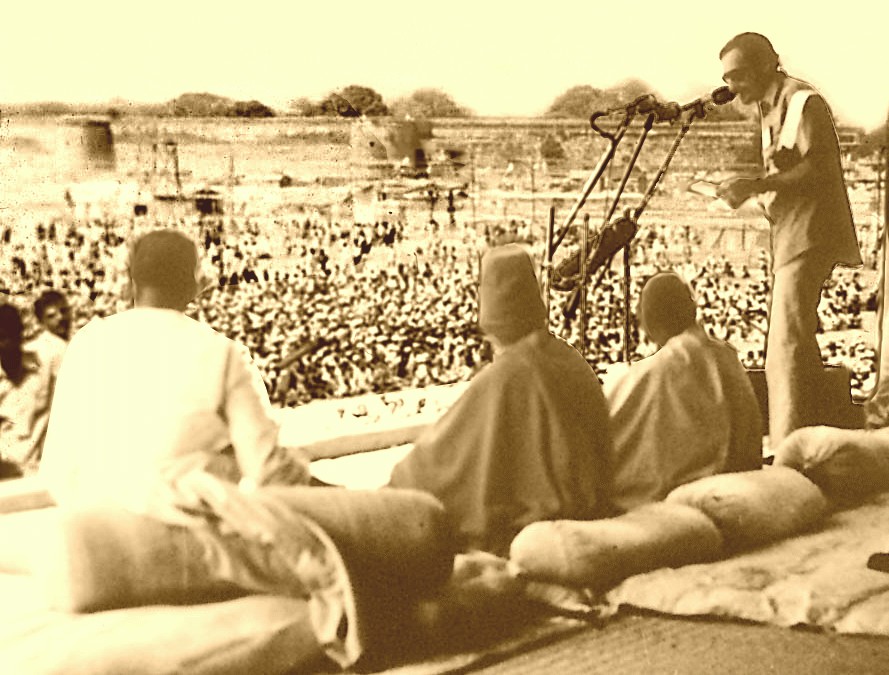 Dr Barnet addresses 500,000 on the banks of the sacred Ganges in Prayag in 1986 at the request of Pandurang Shastri Athavale. PERSONAL INTERESTS.— His electronic music has been performed at concert and modern dance events. His photography has appeared in educational and commercial publications. His interest in religious disciplines included a 1983 fast from solid food, with medical supervision, for 72 days. His early work in computer programming led to an adjunct faculty appointment at The Computer Academy in Kansas City. He also enjoys swimming, singing, and photography. His son, Benjamin, was born in 1980. Vern Barnet - CRES Box 45414 Kansas City, MO 64171 email: vern@cres.org The following sections are under construction:
|
Vern's overview of world religions and the crises of our time:
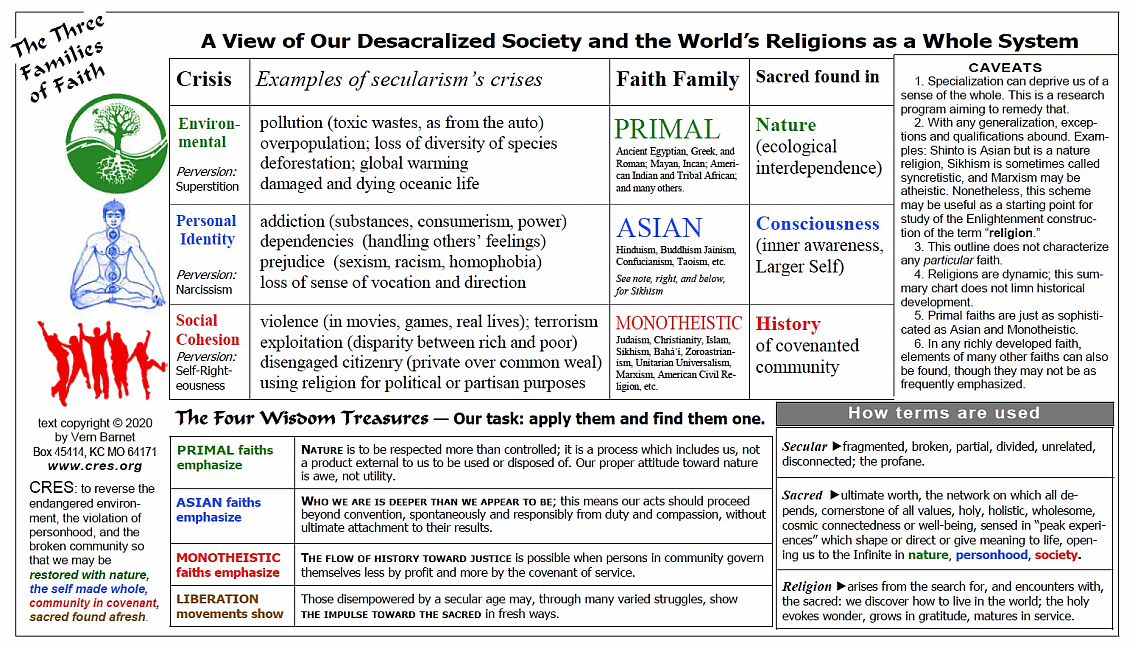
Scholars who
have initmated, though not developed, this research program are cited here.
COPYRIGHT 2005, 2020 Vern Barnet at CRES, Box 45414,
Kansas City, MO 64171
This chart may be reproduced without charge by
educational and non-profit organizations
so long as credit and contact information is included.
Please inform us of your intent to use. Thank you.

|
Share
the wisdom
of the world's spiritual traditions
NATURE is to be respected, more than controlled; it is a process which includes us, not a product external to us to be used or disposed of. Our proper attitude toward nature is awe, not utility. WHO WE ARE is deeper than we appear to be: this means our acts should proceed beyond convention, spontaneously and responsibly from duty and compassion, without ultimate attachment to their results. THE FLOW OF HISTORY toward justice is possible when persons in community govern themselves less by profit and more by the covenant of service. Those disempowered
by a secular age may, through the varied struggles, show THE IMPULSE
TOWARD
THE SACRED in fresh ways. OIL is an example of how the three crises of our time are interwoven with each other.
|
“ . . . ” FAVORITE QUOTATIONS to be organized by topic
#awe AWE and GRATITUDE and SERVICE * From wonder to wonder existence opens. —Lao-Tzu * Where there is no sense of awe, there will be disaster. —Tao Te Ching * Awe is the salve that will heal our eyes. —Rumi * I’m astounded by people who want to “know” the universe when it’s hard enough to find your way around Chinatown. —Woody Allen * Infinite gratitude toward all things past; infinite service to all things present; infinite responsibility to all things future. —Goto Roshi via Huston Smith * Rejoice in the Lord always: and again I say, Rejoice. —Philippians 4:4-8 #interbeing INTERBEING * All things are interdependent. -- Meister Eckhart * Things derive their being and nature by mutual dependence and are nothing in themselves. —Nagarjuna * To see a World in a Grain of Sand And a Heaven in a Wild Flower Hold Infinity in the palm of your hand And Eternity in an hour" —William Blake * Flower in the crannied wall, I pluck you out of the crannies, I hold you here, root and all, in my hand, Little flower—but if I could understand What you are, root and all, and all in all, I should know what God and man is. —Alfred Tennyson * When you understand one thing though and through, you understand everything. —Shunryu Suzuki * The Universe is an interconnected whole in which no part is any more fundamental than any other, so that the properties of one part are determined by those of all the other. —Fritjof Capra * When we try to pick out anything by itself, we find it hitched to everything else in the universe. —John Muir * You can never do merely one thing. —Garrett Hardin * The community stagnates without the impulse of the individual. The impulse dies away without the sympathy of the community. —William James, from an 1878 critique of Herbert Spencer * We are caught in an inescapable network of mutuality, tied in a single garment of destiny. Whatever affects one directly, affects all indirectly. —Martin Luther King Jr. * You are a drop: Divine being is the ocean. While you still live, hold steadily before you the vision of the whole." --Jalal-ud-Din Rumi * Each thing is in each thing. --Nicholas of Cusa (see 1440 De Docta Ignorantia, Book II, Ch 5, where Anaxagoras is credited.) * To preserve a drop of water, throw it into the ocean. —The Buddha * We drink from wells we did not dig; we are warmed by fires we did not kindle, we enjoy fruit from trees we did not plant, we have the joy of cities we did not build. —paraphrasing Deut. 6.11 * I am a part of the whole, and I cannot find God apart from the rest of humanity. —Gandhi * The whole of nature is a sacrament pointing to a reality far beyond itself. —Henri Nouwen:(Seeds of Hope, 1989, p. 100) * Jesus said, “When the Son of Man arrives blazing in beauty, and all the angels with him, then he will sit on the throne of his glory. All the nations will be gathered before him, and he will separate people one from another as a shepherd separates the sheep from the goats, and he will put the sheep at his right hand and the goats at the left. Then the king will say to those at his right hand, ‘Come, you that are blessed by my Father, inherit the kingdom prepared for you from the foundation of the world; for I was hungry and you gave me food, I was thirsty and you gave me something to drink, I was a stranger and you welcomed me, I was naked and you gave me clothing, I was sick and you took care of me, I was in prison and you visited me.’ Then the righteous will answer him, ‘Lord, when was it that we saw you hungry and gave you food, or thirsty and gave you something to drink? And when was it that we saw you a stranger and welcomed you, or naked and gave you clothing? And when was it that we saw you sick or in prison and visited you?’ And the king will answer them, ‘I’m telling the solemn truth: Whenever you did one of these things to someone overlooked or ignored, that was me—you did it to me.’ —Matthew 25:31ff * It is interesting to contemplate an entangled bank, clothed with many plants of many kinds, with birds singing on the bushes, with various insects flitting about, and with worms crawling through the damp earth, and to reflect that these elaborately constructed forms, so different from each other, and dependent on each other in so complex a manner, have all been produced by laws acting around us. These laws, taken in the largest sense, being Growth with Reproduction; Inheritance which is almost implied by reproduction; Variability from the indirect and direct action of the external conditions of life, and from use and disuse; a Ratio of Increase so high as to lead to a Struggle for Life, and as a consequence to Natural Selection, entailing Divergence of Character and the Extinction of less-improved forms. Thus, from the war of nature, from famine and death, the most exalted object which we are capable of conceiving, namely, the production of the higher animals, directly follows. There is grandeur in this view of life, with its several powers, having been originally breathed into a few forms or into one; and that, whilst this planet has gone cycling on according to the fixed law of gravity, from so simple a beginning endless forms most beautiful and most wonderful have been, and are being, evolved. —Charles Darwin, Origin of Species, conclusion * "I cannot consider the organism without its environment . . . from a formal point of view the two may be regarded as equivalent phases between which dynamic contact is maintained by the membranes that separate and link them." --Peter Mitchell, 1957 #void THE VOID [GOD] and ENLIGHTENMENT 1. Zen “pushes contradictions to their ultimate limit where one has to choose between madness and innocence.” —Thomas Merton 2. If you cannot find the truth right where you are, where else do you expect to find it? —Dogen 3. The only Zen you find on the tops of mountains is the Zen you bring up there. —Robert Pirsig 4. Zen is the unsymbolization of the world. —R H Blyth 5. Everything the same; everything distinct. —Zen proverb 888. God is a being beyond being and nothingness beyond being, God is nothing. No thing. God is nothingness. --Meister Eckhart 16. When an ordinary man attains knowledge, he is a sage; when a sage attains understanding, he is an ordinary man. —Zen saying 21. The holiest of holies is empty. —Sam Keen 22. The highest purpose is to have no purpose at all. —John Cage 31. I laugh like a flower, not just mouth laughter. / From non-being I burst forth with gaiety and mirth. / But love taught me another way of laughter. / The neophyte laughs according to profit and gain. / Like a shell, I laugh when broken. — Jalal-uddin Rumi 39. God reveals himself by veiling himself and veils himself by revealing himself. —Suhrawardi 40. Nothingness is being, and being is nothingness. —Azriel of Gerona 41. Form is void, and the Void is form. —Prajna Paramita Hridaya Sutra 44 . . . [V]oidness does not mean nothingness, but rather that all things lack intrinsic reality, intrinsic objectivity, intrinsic identity or intrinsic referentiality. Lacking such static essence or substance does not make them not exist — it makes them thoroughly relative. —Robert F. Thurman “How could God be anything less than everything and still be God?” —William Least Heat-Moon, Celestial Mechanics, 2017, p.96. We shall see that when the left hemisphere was less cultivated than it is today, what we call "God" was neither a "spirit" nor a "being." God was, rather, Reality itself. —Karen Armstrong, The Lost Art of Scripture, p9. God is being-itself. —Paul Tillich, Systemmatic Theology, vol 2, p11. #truth SPEAKING TRUTH 6. A painting of a rice cake does not satisfy hunger. —Ancient saying 7. The map is not the territory. —Alfred Korzbyski 19. The world is one, namely many. —Kitaro Nishida 15. How can you think and hit at the same time? —Yogi Berra 23. Don’t believe anything. —Buckminster Fuller 28. One never knows, does one? —Fats Waller 24. No one’s mouth is big enough to utter the whole thing. —Alan Watts 25. There are people doing everything, and I just don’t think that anything’s It. —Jerry Garcia 88. It is as meaningless to ask whether one believes or disbelieves in Aphrodite or Ares as to ask whether one believes in a character in a novel; one can only say that one finds them true or untrue to life. To believe in Aphrodite and Ares merely means that one believes that the poetic myths about them do justice to the forces of sex and aggression as human beings experience them in nature and in their own lives. —W H Auden 20. The final belief is to believe in a fiction, which you know to be a fiction, there being nothing else. The exquisite truth is to know that it is a fiction, and that you believe it willingly. —Wallace Stevens: Opus Posthumous: Poems, Plays, Prose, p 163. 34. Any universe simple enough to be understood is too simple to produce a mind capable of understanding it. —John D Barrow 36. There are no whole truths; all truths are half-truths. It is trying to treat them as whole truths that plays the devil. —Alfred North Whitehead. Language disguises thought. —Ludwig Wittgenstein, Tractatus Logico-Philosophicus We can know more than we can tell. —Michael Polanyi, The Tacit Dimension If the kind of controversy which so often springs up between modernism and traditionalism in religion were applied to more commonplace affairs of life, we might see some strange results. . . . [Let us take as an example] a passage in an obituary notice which mentions that the deceased had loved to watch the sunsets from his peaceful country home. A. writes deploring that in this progressive age few of the younger generation ever notice a sunset; perhaps this is due to the pernicious influence of the teaching of Copernicus who maintains that the sun is really stationary. This arouses B. to reply that nowadays every reasonable person accepts Copernicus's doctrine. C. is positive that he has many times seen the sun set, and Copernicus must be wrong. D. calls for a restatement of belief, so that we may know just how much modern science has left of the sunset, and appreciate the remnant without disloyalty to truth. E., in a misguided effort for peace, points out that on the most modern scientific theory there is no absolute distinction between the heavens revolving around the earth and the earth revolving under the heavens; both parties are (relatively) right. F. regards this as a most dangerous sophistry, which insinuates that there is no essential difference between truth and untruth. G. thinks that we ought now to admit frankly that the revolution of the heavens is a myth; nevertheless such myths still have a practical teaching for us at the present day. H. produces an obscure passage in the Almagest which he interprets as showing that the philosophy of the ancients was not really opposed to the Copernican view. . . . It is forgotten that what the deceased man looked out for each evening was an experience and not a creed. -- Sir Arthur Eddington, Science and the Unseen World, p 84. 211. What I have now discussed, namely confusion surrounding the uses of the word “belief,” is connected with another misunderstanding, namely, that Christianity is a set of doctrines, of propositions, a theory, an explanation. And what can one do with those? Prove them. And who will show you how to do that? Well, Aristotle was a prover and Euclid has been teaching us for 2,000 years. And Saint Paul? Saint Paul tells stories. But what then is Christianity? Christianity is a faith, we all know that. It is also a hope and a fear. It is a promise and a threat. It is a light shining in the darkness. It is a knock at the door. It is a guest at supper. It is coals of fire. It is weeping at a betrayal. It is reconciliation. It is hearing the voice of the shepherd. It is new wine to drink. It is madness. It is a house built on a rock. It is the Truth walking. It is the etemal in rags. It is the finishing touch. It is the lily of the valley. It is the Roysterer son, home again, home again. It is the black sheep found. It is the rich young ruler, sorrowful. It is the widow's mite. It is love rebuffed. It is rosemary for remembrance. It is a lamb slain. It is ”a brand plucked out of the fire.” --O K Bouwsma, Without Proof or Evidence: Essays of O. K. Bouwsma, p22. #religion "RELIGION" Men make their religion a historical religion. They see God in Judea and in Egypt, in Moses and in Jesus, but not around them. We want a living religion. As the faith was alive in the hearts of Abraham and Paul, so I would have it in mine. I want a religion not recorded in a book, but flowing from all things. When we have broken our God of tradition and ceased from our God of rhetoric, then may God fire the heart with his presence. —R W Emerson 26. True religion is a movement, not a position; a process, not a result; a growing tradition, not a fixed revelation. —S Radhakrishnan Those who say religion has nothing to do with politics do not know what religion means. -Gandhi “So, while those who were called Papists ate God but not bread, the Lutherans ate both bread and God. Soon after there came the Calvinists who ate bread and did not eat God.” 102 —Essai sur l’histoire, and is quoted by A. J. Ayer in his Voltaire (N.Y.: Random House, 1986). Only by remaining in one's confession, and by deepening and broadening it that one can work towards universalism or super-confessionalism. —Nicholas Berdyaev, Freedom and the Spirit, 1935 We cannot ultimately specify the grounds (either metaphysical or logical or empirical) upon which we hold that our knowledge is true. Being committed to such grounds, dwelling in them, we are projecting ourselves to what we believe to be true from or through these grounds. We cannot therefore see what they are. We cannot look at them because we are looking with them. —Michael Polanyi, Meaning [A] religion exists for us only if, like a piece of poetry, it carries us away. It is not in any sense a "hypothesis." —Michael Polanyi #advice ADVICE and INSIGHT [W]e have lost the yearning for God which comes when we are faced with the sufferings of people. --Jean Vanier, Followers of Jesus, 2976, p7. Compassion means justice. . . . The person who understands what I have to say about justice understands everything I have to say. -- Meister Eckhart 8. In walking, just walk. In sitting, just sit. Above all, don't wobble. —Yun-men 12. One day Chao-chou fell down in the snow, and called out, “Help me up!” A monk came and lay down beside him. Chao-chou got up and went away. —Zen story 27. Teach us to care, and not to care. —T S Eliot 32. One day a man approached Ikkyu and asked: “Master, will you please write for me some maxims of the highest wisdom?” Ikkyu took his brush and wrote “Attention.” “Is that all?” asked the man. Ikkyu then wrote: “Attention. Attention.” “Well,” said the man, “I really don’t see much depth in what you have written.” Then Ikkyu wrote the same word three times: “Attention. Attention. Attention.” Half-angered, the man demanded, “What does the word ‘Attention’ mean, anyhow?” Ikkyu gently responded, “Attention means attention.” —Zen story 37. Eventually, all things merge into one, and a river runs through it. The river was cut by the world's great flood and runs over rocks from the basement of time. On some of the rocks are timeless raindrops. Under the rocks are the words, and some of the words are theirs. I am haunted by waters. —Norman Maclean 38. It’s hard to know when to respond to the seductiveness of the world and when to respond to its challenge. If the world were merely seductive, that would be easy. If it were merely challenging, that would be no problem. But I rise in the morning torn between the desire to improve (or save) the world and a desire to enjoy (or savor) the world. This makes it hard to plan the day. —E. B. White, quoted in The New York Times 1969 July 11, page 43. 43. Nothing that is worth doing can be achieved in a lifetime; therefore, we must be saved by hope. Nothing which is true or beautiful or good makes complete sense in any immediate context of history; therefore we must be saved by faith. Nothing we do, however virtuous, can be accomplished alone; therefore we are saved by love. No virtuous act is quite as virtuous from the standpoint of our friend or foe as it is from our standpoint. Therefore we must be saved by the final form of love which is forgiveness. —Reinhold Niebuhr, The Irony of American History -. The slightest intention to pursue Buddhahood is cause for shame. --Tung-shan Liang-chieh 46a.To be hopeful in bad times is not ... foolishly romantic. It is based on the fact that human history is a history not only of cruelty, but also of compassion, sacrifice, courage, kindness. What we choose to emphasize in this complex history will determine our lives. If we see only the worst, it destroys our capacity to do something. If we remember those times and places — and there are so many — where people have behaved magnificently, this gives us the energy to act, and at least the possibility of sending this spinning top of a world in a different direction. And if we do act, in however small a way, we don’t have to wait for some grand utopian future. The future is an infinite succession of presents, and to live now as we think human beings should live, in defiance of all that is bad around us, is itself a marvelous victory. —Howard Zinn 49. The doctrine is compassion. —The Dalai Lama, Ethics for a New Millennium 50. Follow, poet, follow right To the bottom of the night, With your unconstraining voice Still persuade us to rejoice; With the farming of a verse Make a vineyard of the curse, Sing of human unsuccess In a rapture of distress; In the deserts of the heart Let the healing fountain start, In the prison of his days Teach the free man how to praise. — W H Auden 48a. Our revels now are ended. These our actors, As I foretold you, were all spirits and Are melted into air, into thin air: And, like the baseless fabric of this vision, The cloud-capp'd towers, the gorgeous palaces, The solemn temples, the great globe itself, Yea, all which it inherit, shall dissolve And, like this insubstantial pageant faded, Leave not a rack behind. We are such stuff As dreams are made on, and our little life Is rounded with a sleep. — Prospero, The Tempest, Act 4, Scene 1 48b. All the world's a stage, And all the men and women merely players; They have their exits and their entrances; And one man in his time plays many parts, His acts being seven ages. At first the infant, Mewling and puking in the nurse's arms; And then the whining school-boy, with his satchel And shining morning face, creeping like snail Unwillingly to school. And then the lover, Sighing like furnace, with a woeful ballad Made to his mistress' eyebrow. Then a soldier, Full of strange oaths, and bearded like the pard, Jealous in honour, sudden and quick in quarrel, Seeking the bubble reputation Even in the cannon's mouth. And then the justice, In fair round belly with good capon lin'd, With eyes severe and beard of formal cut, Full of wise saws and modern instances; And so he plays his part. The sixth age shifts Into the lean and slipper'd pantaloon, With spectacles on nose and pouch on side; His youthful hose, well sav'd, a world too wide For his shrunk shank; and his big manly voice, Turning again toward childish treble, pipes And whistles in his sound. Last scene of all, That ends this strange eventful history, Is second childishness and mere oblivion; Sans teeth, sans eyes, sans taste, sans everything. — Jaques, As You Like It, Act 2, Scene 7. 48c. To-morrow, and to-morrow, and to-morrow, Creeps in this petty pace from day to day To the last syllable of recorded time, And all our yesterdays have lighted fools The way to dusty death. Out, out, brief candle! Life's but a walking shadow, a poor player That struts and frets his hour upon the stage And then is heard no more: it is a tale Told by an idiot, full of sound and fury, Signifying nothing. — Macbeth, Act 5, Scene 5 Vanity of vanities, says the Preacher, vanity of vanities! All is vanity. —Ecclesiastes, 1:2; English Standard Version Bible translation In my opinion, nothing is worthwhile; everything is futile. —Ecclesiastes, 1:2; Message Bible translation Emptiness and futility, said Ecclesiastes; emptiness and futility, yea, everything is empty and futile. —Ecclesiastes, 1:2; Wycliffe Bible translation Work out your salvation with fear and trembling, for it is God who works in you to will and to act in order to fulfill his good purpose. —Philippians 2:12-13 #unsorted UNSORTED When we say God is eternal, we mean He is eternally young. -- Meister Eckhart A psychotic is a guy who's just found out what's going on. —William S Burroughs To study Buddhism is to study the self. To study the self is to forget the self. To forget the self is to be enlightened by all things. To be enlightened by all things is to drop off our own body and mind, and to drop off the bodies and minds of others. No trace of enlightenment remains, and this no-trace continues endlessly. —Dogen The most terrifying thing is to accept oneself completely. —Carl Jung The self says, I am; the heart says, I am less; the spirit says, you are nothing. —Theodore Roethke Life is what happens when you're busy making other plans. —John Lennon Our joy comes by another's blood and from wounds we open all our lives. --Robert Farrar Capon in his 1982 Beyond Noon and Three, p78. Rewards and punishment is the lowest form of education. —Chuang-Tzu I am convinced that men hate each other because they fear each other. They fear each other because they don’t know each other, and they don’t know each other because they don’t communicate with each other, and they don’t communicate with each other because they are separated from each other. -- Dr. Martin Luther King, Jr https://www.belovedcommunitytalks.org/category/king-speaks/ Music is the wine that fills the cup of silence. —Robert Fripp People like us, who believe in physics, know the distinction between the past, present and future is only a stubbornly persistent illusion. —Albert Einstein If one part suffers, every part suffers with it; if one part is honored, every part rejoices with it. —1 Corinthians 12:25 Remove duality and do away with all disputes; The Hindus and Muslims are not other than He. Deem everyone virtuous, there are no thieves. For, within every body He himself resides. How the Trickster has put on a mask! —Bulleh Shah (1680 - 1758) Capitalism is unthinkable as a "sacred" economy. It is the result of the secularization of economic life, and by it the hierarchical subordiation of the material to the spiritual is inverted. —Nicholas Berdyaev, The End of Our Time, 1933 Shall we receive the good at the hand of God, and not receive the bad?" —Job If God is God He is not good,/ If God is good He is not God . . . . —Archibald MacLeish #vernquoted VERN IS QUOTED: For longer quotations and citations, go here. a. The purpose of a Vital Conversation is not to win an argument, but to win a friend and advance civilization. b. For enlightenment may be the freedom of knowing there is no enlightenment to seek. Enlightenment is knowing there is no Enlightenment. c. Spirituality is what energizes us with a sense of significance. d. Spirituality is breathing with a sense of the sacred. |
|
 |  | 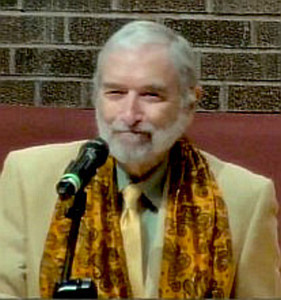 |
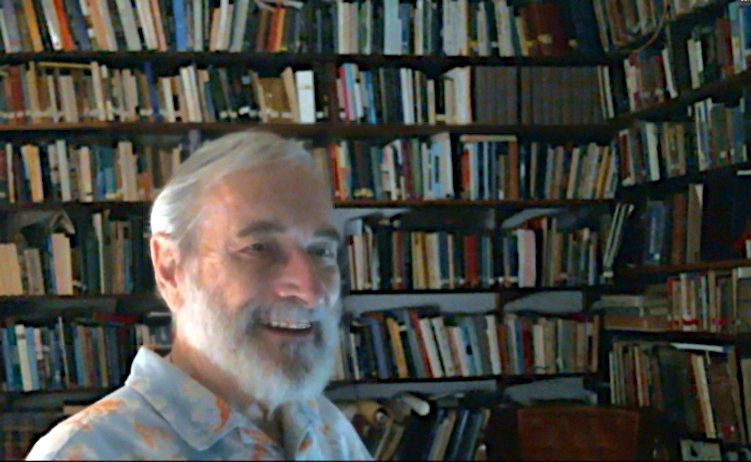 | 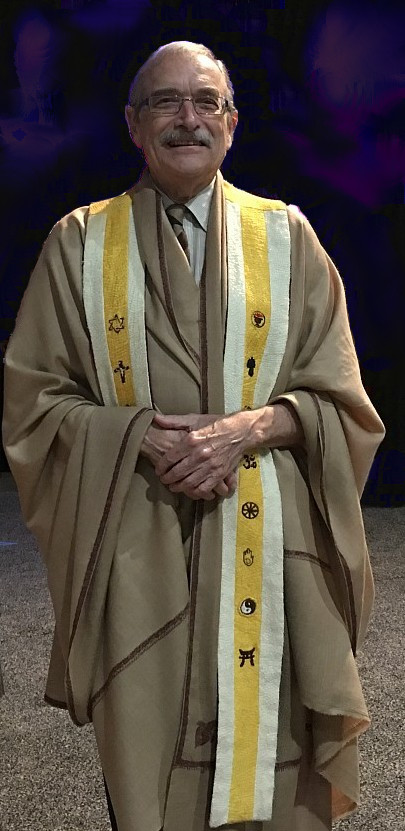 |  |

| Chart of the Sacred in Three Families |
| Cited |
| BookList |
| Quotations, Favorite |
| Publicity Photos |
| The Vern Barnet Interfaith Service Award |
| Top of page |
| ALSO |
| Scholars page in preparation |
Some Googling . . . . gives sites such as these including Vern Barnet:
http://www.allrivers.org/VOD-Vern_Barnet.html
http://www.readthespirit.com/interfaith-peacemakers/vern-barnet/
http://goldenageofgaia.com/2010/04/22/vernet-barnet-prayer-for-mother-earth/
http://www.campus-watch.org/docs/author/Vern+Barnet
http://www.kcfs.org/id/VBEvolPanl.pdf
http://www.meetup.com/skeptics-137/events/59915622/
https://www.mcckc.edu/PDF/commed/mw/MW_50_Forward_Nov-Dec_2014.pdf
http://www.kcinterfaith.org/about-us/our-history
http://redeemerkansascity.org/2011/09/22/announcing-the-katz-drugstore-purchase/
http://www.psduua.org/heritage/bring/updates/ks_shawnee_mission.html
http://www.robertbrumet.com/role-technology-spiritual-evolution/
http://www.uumeadville.org/uutemple.htm
http://www.ucopmensgroup.org/inspiration-past-meetings/confessions-of-a-religion-columnist
http://pressreleases.kcstar.com/release/messages/28797/
http://whatissynchronicitythemovie.com/cast.htm
http://article.wn.com/view/2012/04/03/Vern_Barnet_We_need_to_learn_about_Islam/
http://culturallyspeaking.net/2011/03/18/congressional-hearings/
http://huuweb.org/committees.htm
http://www.catholickey.com/index.php3?gif=news.gif&mode=view&issue=20021220&article_id=2180
http://tonywoodlief.com/category/theology/
http://www.mountosb.org/ministries/faculty
http://billtammeus.typepad.com/my_weblog/2009/10/103409-1.html
http://www.fairnessproject.org/Kansas%20City%20Star.html
http://www.communityofreasonkc.org/page/9/
http://vmehta.conforums3.com/index.cgi?board=Religions&num=1150555879&action=display&start=3007
http://www.rockhurstpress.org/Testimonials.php
http://www.abc-usa.org/2013/04/23/common-ground-a-baptist-muslim-conversation/
http://www.uupuertorico.org/Values/Ecology.htm
http://www.sbnr.org/the-fun-theory-sbnr-daily-1-27-11.html
http://www.htccofkc.org/home-detail.html
http://ncronline.org/news/spirituality/author-look-church-history-crowds-perspective
http://www.pitch.com/kansascity/unholy-roller/Content?oid=2173646
http://www.irckc.org/?350
http://statemigration.com/2d64a2a7471fc9d5.html
http://ceciliaferris.ourwedding.com/view/9697000267350921/34952562
http://www.islamgate.org/?tag=music
http://talkwisdom.blogspot.com/2006/03/brokeback-mountain-christian-response.html
http://paulturner.org/wp-content/uploads/2012/08/canvas3.htm
http://www.kctaa.org/s/647/index.aspx?sid=647&gid=1&pgid=395
http://www.practicalbioethics.org/files/compassion-sabbath/1-CompassionSabbathKitKC.pdf p12
http://www.kansascity.com/living/religion/article2133271.html
http://www.crescentpeace.org/newsletter--resources.html
http://www.cityofinvernessonline.com/heard-on/the-meaning-of-the-word-hero-689.asp
http://archives.religionnews.com/tags/tag/vern+barnet
http://www.humanagenda.com/newsletters.html
http://www.wopular.com/vern-barnet-so-why-are-you-arguing-vern
http://www.biblestudyguide.org/articles/pantheism/pantheism-the-new-world-religion.htm
http://interfaithmeditation.com/wordpress/?page_id=17
http://www.westportpresbyterian.org/our-history/
https://www.bc.edu/content/dam/files/centers/boisi/pdf/s12/thestateofislamicstudiesinamericanuniversities.pdf
http://www.alzheimer.mb.ca/images/1E%20-%20Spirituality%20-%20A%20Foundation%20for%20Strengthening%20Relationships%20in%20Dementia%20Care.pdf
http://vividlife.me/ultimate/14833/kansas-city-home-of-the-2012-shift/
http://www.baptistboard.com/showthread.php?t=59985
http://issuu.com/sunflower_publishing/docs/fcm13-14_web/108
http://archive.constantcontact.com/fs070/1104002974534/archive/1111104162599.html?keepThis=true&TB_iframe=true&height=500&width=675
http://www.examiner.com/article/christianity-and-shawnee-indian-mission-the-kansas-city-area
http://www.examiner.com/article/christianity-and-shawnee-indian-mission-the-kansas-city-area
http://www.jewishworldreview.com/0511/bin_laden_anti_obituary.php3
https://library.wustl.edu/wp-content/uploads/2016/06/als-19990113-miles-from-barnet.jpg
https://www.ncronline.org/news/spirituality/author-look-church-history-crowds-perspective
https://www.htccofkc.org/page/a-perspective-on-kansas-city-hindu-temple.html
https://readthespirit.com/interfaith-peacemakers/vern-barnet/
https://www.amazon.com.mx/Religion-Critical-Mind-Journey-Doubters/dp/0739147749
https://www.uurockford.org/our-history.html
http://www.mosquitonet.com/~prewett/onecitythreefaiths.html
https://www.bc.edu/content/dam/files/centers/boisi/pdf/s12/thestateofislamicstudiesinamericanuniversities.pdf
https://www.uufcm.org/uufcm-enews/april-13th-2016
https://fgulen.com/en/gulen-movement/1336-fgulen-com-english/videos-on-fethullah-gulen
https://art.nelson-atkins.org/objects/16195/rumi
https://hometownreads.com/city/kansas-city
http://www.kccathedral.org/2012/wp-content/uploads/2016-0814-AM-Pentecost13-PrayerA-Combined.pdf
https://www.wikiwand.com/en/Themes_in_Avatar
http://kep.org.sa/?lang=en&paged=11
https://www.umkc.edu/commu/catalog_winter/inner.pdf
https://www.revscottwells.com/2014/06/24/opening-worship-thoughts-from-von-ogden-vogt/
http://www.uularamie.org/wp-content/uploads/2016/02/UULaramie-News-March-2016.pdf
http://journals.sfu.ca/cjbs/index.php/cjbs/article/viewFile/97/94
https://docplayer.net/94036600-D-r-a-f-t-motto-epitomizing-texts-2-chief-seattle-s-letter-3-the-heart-sutra-4-lincoln-s-second-inaugural-address.html
wr notes complete set
https://sites.google.com/site/ucmlifelonglearning/Past
http://allsoulskc.org/wp-content/uploads/JULY-FLAME-2019.pdf
https://paulturner.org/wp-content/uploads/2012/08/Articles.htm
https://www.afsc.org/sites/default/files/documents/KC%20AFSC%20Peace%20and%20Justice%20Alerts%20August%2015%20%2C%202014.pdf
https://practicalbioethics.org/about-us/impact-stories.html
https://wikimili.com/en/Interfaith_Voices
Some Points of Personal and Intellectual Development
of hundreds of sermons, speeches, etc, only first or major markers listed (just beginning to make a list)
(notes toward a proper draft)
1942 May 25 born Clarkson Hospital, Omaha, with no name on birth certificate
1951
Dec 24 saw the first performance of Gian Carlo Menotti's “Amahl and the
Night Visitors” on the first Hallmark Hall of Fame program, presented
on Christmas Eve on NBC.
1950s I loved to hear my grade school violin teacher play, Beethoven's minuet in G.
She
once took me to hear Nathan Milstein, who she thought was a better
violinist than Jascha Heifetz. I was gob-smacked. I also remember her
raving about a solo saxophonist who came to town.
1957? read Tom Paine's Age of Reason and Bertrand Russell's "Why I am Not a Christian."
1960 graduated from Omaha South High School
1960 summer US Naval Reserves, Active Duty for Training
1960 joined Omaha First Unitarian Church
1962 Jan 24 and Feb 20 wrote Bureau of Navel Personnel requesting discharge for moral, philosophical, and religious reasons
1962 saw the movie "Billy Budd" and could not speak for a couple hours
1963? studied with Oets Kolk Bouwsma who had worked with Ludwig Wittgenstein, University of Nebraska
1963 Mar 3 sermon "Science and Religion"
1964 Apr 26 sermon setting forth the religious basis for Klinde, "Four Heavens in Search of Hell"
1965
graduate study with Chang Chen-Chi, visiting University of Nebraska
from Penn State, an expert in Tibetan and Chinese Buddhism
1965
graduate study with Michael Durrant, visiting from what is now Cardiff
University, a specialist in the philosophy of religion indebted to
Wittgenstein
1966-67 wife taught at Millikin University, Decatur, IL where we had a Victorian house; divorce followed
1967 studied with Mircea Eliade and became next-door neighbor (he came to my 1970 wedding)
1970
March 7 about 12:20 pm -- 72% solar eclipse in Chicago -- Brad Carrier
and I brought the sun back 100% with our ritual outside of Rockefeller
Chapel
1970 met Huston Smith for first time, led to numerous exchanges including taking Smith to parents' graves in 2005
studied with Joseph Campbell in Santa Barbara
1970 awarded Doctor of Ministry degree with 500-page dissertation,
1970 May 24 Ordained by the Lincoln, NE Unitarian Church
1970 June 6 Married Carole Wilson High
1970-1971 interim minister, Unitarian Church, Rockford IL
1971 Europe: Italy, Germany, France, Holland, England
1971- 1975 minister, Independent Congregation (Unitarian) Church, moved to 278 DeVore Dr, Meadville, PA 16335
1972 July 10 about 2 pm -- about 70% solar eclipse in Meadville, PA. with ritual outside the Unitarian Church
19?? Mexico, Guatamala, Honduras
Charlie
Kriner
--------
Institute of Cultural Affairs
between 1970-75? studied Islam with Jane Smith (Iliff/Harvard)
before 1985 Mexico, Peru, Honduras, Belize (Columbia), Panama
turning points and glide paths
Calling All Teens ,
Th Paine B Russell / science
Teilhard de Chardin /science+rlgn
Unitarian Church
Kuhn Stru Sci Revolutns
2nd semCollege librar science+rlgn=myth,ritual
grad work ChenCiChang; Void Sunya Hwa Yen Budd
UChgo Eliade Ency Rlgn phenomenlogy of religion :what is sacred
1969?1970 Maundy Thursday eucharist understood in life-changing way
Dr Diss: Blake : Enlightenment suspecious
parishes: WR great responses (qja
travel: Europ Central Scouth Am MidEast Asia: 500,000
KC: A-Z interfaith work Ja County 001 1 commisison
Star hire 18 years 947 new way of acq with community
Natl Cath Reporter, Jewish Chronicle
theory-practice colleges and seminaries seminaries as well
relgn and the arts .
Worship / WRlgn / Rlg&Medicne KUMed, UMKC Med lectureB00
WR: 3 crises what is sacred
GHTC 2001 Mayor Gov Symp Opera, Ballet, CBS TV
2010 decide to practice 1 rlgn deeply chose Episc
to immerse myself in one tradition V
fav recent acamedic assigment create a new course for‘Central Seminary ministry in an age of Pluralism _
Unitve, ritual, mythic, conceptual merlin donald
Al Brooks racism
Want others to love their faith as much as I love mine.
chaplaincy teaching
Heart to Heart
By Christine Robinson and Alica Hawkins
https://books.google.com/books?id=TcW23iXbHYYC&pg=PA113&lpg=PA113&dq=VERN+BARNET&source=bl&ots=PZ52qcIyXR&sig=mEXGqWqS35rSbIQdji37uyKv1oY&hl=en&sa=X&ei=9EgkVcyDPZfWoASS_YHQBw&ved=0CEQQ6AEwBjgy#v=onepage&q=VERN%20BARNET&f=false
The A to Z of Unitarian Universalism
By Mark W. Harris
https://books.google.com/books?id=6XEPjO1-4e0C&pg=PA124&lpg=PA124&dq=VERN+BARNET&source=bl&ots=UX7ojdQTyM&sig=NVjF-mcaGaf4984F_8UkpBEGKsI&hl=en&sa=X&ei=9EgkVcyDPZfWoASS_YHQBw&ved=0CE0Q6AEwCTgy#v=onepage&q=VERN%20BARNET&f=false
KCTAAawards
AlumAwardPhoto
Rarely
do I add a book to my list of essential reads for those who wish to
engage me in controversy and others who want hints about how I see the
world. But now I am adding Daniel Kahneman's Thinking, Fast and Slow. A
Nobel laureate in economics, Kuhman is better described as a decision
theorist. The book deals with how to decide questions affecting
personal happiness, and in job, medical, legal, and many other realms.
His book shamed me as I realized how I still am sometimes misled by
statistics and the way an argument is framed. And our current political
climate makes it clear that others may be even more beset with
fallacies, misrepresentations, and conceptual illusions. The 38
chapters require concentration. You will find critical insights all the
way to the last period. But, 37 years after reading Douglas
Hofstadter's Godel Escher Bach for the first time, I still place it at
number 1 in explaining reality.